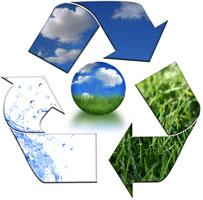
Environmental Research Overview at UNH
Description of the Environmental Research Area:
- Bioremediation
- Coastal ResponseThe Coastal Response Research Center (CRRC) was established as a partnership between the National Oceanic Atmospheric Administration (NOAA), through the Office of Response and Restoration (OR&R), and the University of New Hampshire (UNH), through the Environmental Research Group (ERG) in 2004. The Center for Spills in the Environment (CSE) is a University center that expands the scope of interaction and cooperation with the private sector, other government agencies and universities. The Centers are administered by, and located at, the UNH campus in Durham, NH.
The CRRC partnership stimulates innovation in spill preparedness, response, assessment, and implementation of optimum spill recovery strategies. The primary purpose of the Center is to bring together the resources of a research-oriented university and the field expertise of OR&R to conduct and oversee basic and applied research, conduct outreach, and encourage strategic partnerships in spill response, assessment and restoration.
The CSE involves individuals and institutions, public and private, at local, regional, national and international levels in identifying needs, evaluating and demonstrating promising technologies, and fostering their use as part of new, integrative approaches to response and restoration.
- Drinking Water Treatment TechnologiesThe NE-WTTAC specializes in multidisciplinary research and development, piloting, verification, and diffusion of innovative, water treatment technologies. Frequently, partnerships are formed between the private sector, a host community, and relevant regulatory agencies at the local, state, regional and national level.
- Stormwater and Wastewater Treatment
The UNH Stormwater Center is a dynamic research, testing and educational facility which serves as a technical resource for water managers, planners, and design engineers in New England and throughout the United States.
Under the Clean Water Act Phase II rules, the Environmental Protection Agency requires local governments to develop stormwater programs. In response, many organizations have or are now developing plans and actions to achieve desirable water quality and storm volume reduction. Although many of the stormwater management strategies are based on sound theory, there is no requirement that they undergo independent, third-party scientific testing. A three-year study of nine seacoast sites in New Hampshire clearly showed that traditional stormwater technologies failed in reducing at least one water quality parameter two-thirds of the time. The National Research Council recently noted that increasing urbanization has resulted in degradation of water quality and habitat in virtually every urban stream system. The report recommends, among other items, additional research on the relevant hydrologic and water quality processes within stormwater control measures.
